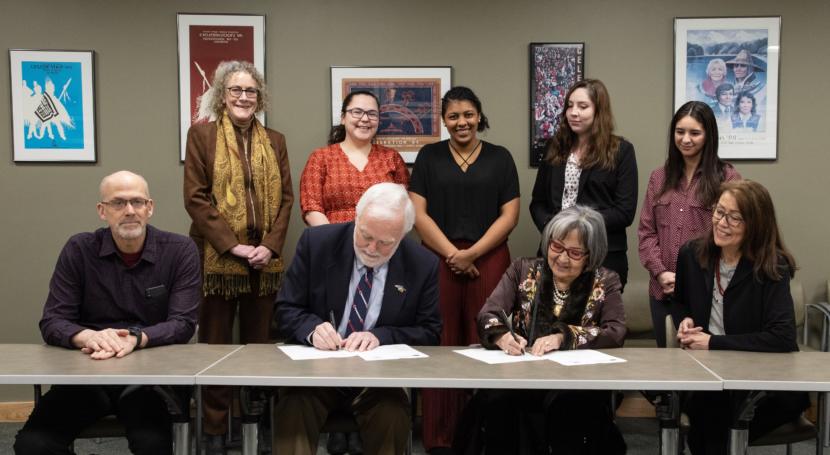
Sealaska Heritage Institute and the University of Alaska Southeast announced a scholarship program aimed at getting more Native language teachers into Southeast communities.
If all goes as planned, eight more scholars will selected this summer and enrolled in the fall into the second year of the immersive program. Come 2022, a total of 16 people should be certified by the state to teach the Tlingit, Haida and Tsimshian languages of Lingít, X̱aad Kíl and Sm’algya̱x.
Sixteen teachers might not sound like a lot. But Lee Kadinger, chief operating officer at Sealaska Heritage Institute, said, “Average, one teacher has 20 students, approximately. So you’re looking at 320 students impacted annually. And you know, look at that at over a 10-year period, that’s 3,200 youths that could be trained to learn their Native languages. … It is a crucial foundation for the building blocks of growing that language and having that spread to thousands.”
Only 10.6% of Alaska Native students in Southeast Alaska had access to an educator who teaches their language in the 2018-2019 school year, according to SHI.
Tom Thornton, UAS dean of arts and sciences, said these languages are considered “endangered.”
“That simply means they’re not being reproduced by parents in the homes to their children, except in exceptional circumstances,” he said. “And so you need to do something more radical to regenerate speakers.”
SHI is providing the bulk of the funding through a U.S. Department of Education grant; $1.9 million will go to the university to fund the scholarship program, which covers tuition, room, board and part-time employment.
Thornton said it’s hard to predict if this scholarship program will be a one-off or ongoing because of budget uncertainty. But he said it is part of the university’s longstanding commitment to build up its Native language offerings.
Throughout the program, the recipients are expected to host community language learning sessions and work in classrooms and at community organizations.
The application period is open until May 12. Eligibility is limited to Alaska Natives, a Sealaska Corp. shareholder or shareholder descendant, or Tsimshian members of a federally recognized tribe. Additional details are spelled out in the application form on the Sealaska Heritage Institute website.
Correction: In an earlier version of this story, the caption for the photo misidentified one of people pictured. The person at left in the back row is UAS Provost Karen Carey, not Keni Campbell of UAS.